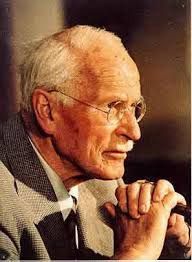Consumer Behavior
Carl Jung...Consumer Psychologist?
Emotion and the unconscious in consumer behavior
Posted March 12, 2014

Among the many roles that people play is that of consumer. As such, psychology resides at the core of consumer behavior. While the theories and writing of most great psychologists are foundations of our knowledge about the consumer; Carl Jung made special contributions with his understanding of emotion and the unconscious—and how they influence our behavior.
Consumer psychology and marketing
Consumer psychology explains behavior in the marketplace by exploring and understanding the mind of the consumer. From this perspective, the consumer creates meaning for what they encounter and then acts on the basis of their interpretation. Thus, the consumer is an active agent in the marketing process rather than being a passive reactor to products, advertising, and other marketing activity.
Historically, marketing theory has been based on the view that consumer behavior can be shaped and elicited by marketing activity. Traditional marketing texts have explained consumer behavior with the so-called A-I-D-A formula. All the marketer needed to do was attract Attention, generate Interest, and evoke Desire for the consumer to take Action.
Similarly, marketing literature often explains the consumer-to-product relationship in terms of the “4P’s”—Product, Price, Promotion, Placement (distribution channel). The 4P's ignore the fact that the consumer’s mind creates the meaning of each “P,” which determines whether it influences behavior.
A-I-D-A, the 4P’s, and other marketing formulas suggest that the consumer’s mind is a blank slate waiting to be written upon by the marketer. In this view, the marketer-to- consumer relationship is almost Pavlovian.
Consumer psychology recognizes that the mind of the consumer is the creator of marketplace reality, not the activity of the marketer. Accordingly, consumer psychology focuses on emotional along with rational thinking, and unconscious as well as conscious motivation.
Emotion
A tenet of Jung’s approach is that individual context shapes meaning, and from meaning comes behavior: “Thinking tells us what this thing is; feeling tells us what this thing is to us.”
With few exceptions, emotion exerts a great deal of influence on consumer behavior. For example, mundane household products have little or no differentiation, and private label alternatives to name brands are available at cheaper prices. Yet, strong emotions often are the reason for household brand preference—from childhood memories, positive associations with attributes like fragrance, or other experiences connected to feelings.
Emotions are the core of luxury, from simple pleasure to self-identity to social comparison. Jung wrote that our emotional reactions to things tell us about our values and needs. Many luxury categories are defined not by what the products are but by what they mean.
In healthcare, emotion can improve patient compliance with treatment and medication. Studies we have conducted for pharmaceutical companies have shown the benefit of tying compliance to the psychological need to be in control of one’s life. As Jung wrote, “it all depends on how we look at things, and not how they are themselves.”
The unconscious
One of Jung’s major contributions to psychology is our modern-day understanding of the unconscious. Jung liberated this concept from the dark dungeon of repression envisioned by Freud to be recognized on par with the conscious as a vital component of the mind.
Jung’s concept is that we can experience events below the threshold of consciousnesses and that they can be absorbed subliminally. Thus, we are unaware of their importance to emotion and reason. When stimulated, they can move up from the unconscious to influence conscious thinking and behavior.
In studies of luxury consumers, we have identified motivations of self-efficacy, self-esteem, and social comparison—and unconscious emotions of trust, confidence, and security—all present on an unconscious level and influencing behavior.
Jung pursued understanding the human mind beyond the boundaries of psychology that existed in his time. He explored psychology through philosophy, dreams, myth, and art. In our culture, he might have embraced the consumer as well. But with certainty he would agree that consumer behavior is driven in great part by unconscious emotions.
© 2014 Peter Noel Murray, Ph.D.




